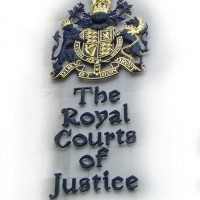
The case was brought by Tenet as it challenged a decision by the Financial Ombudsman Service (FOS) that the network was responsible for the cash lost by some of Dhanda’s clients and should compensate them.
Delivering his ruling, Mr Justice Ouseley said the regulated and unregulated advice given by Dhanda “were so closely linked that they amounted to ‘regulated’ activities” and therefore were Tenet’s responsibility.
He noted that “the same analysis which persuaded the Ombudsman… impels the conclusion that they come within section 39 [of the Financial Services and Markets Act].”
However, Justice Ouseley acknowledged that this would not necessarily always be the case, where “some time later” advice to purchase an unregulated investment took place after regulated advice to sell one.
Tenet told Mortgage Solutions it will not appeal the verdict. Group risk and regulatory director Caroline Bradley added that the network constantly reviews policy and procedures in line with best practice and the evolving market place, including its training and competence scheme.
Goa property
Dhanda is a convicted fraudster, serving a five-and-a-half-years prison sentence for defrauding 37 people of around £2.9m in a Ponzi-type fraud.
He has also been banned from working in financial services by the Financial Conduct Authority (FCA).
His victims included Mr and Mrs Thorpe, who lost £65,000 from their life savings following Dhanda’s advice to sell their Friends Life Policy, bonds and ISAs.
From this sale he advised them to send £55,000 to him to invest in a property in Goa, and lesser sums for him to use as business-related loans.
However, Dhanda never invested the money in Goa, he gambled it away or used it to pay off his gambling debts.
The judge suggested he may have done the same with the loans.
Following these losses the Thorpes complained to the FOS, which ruled that Tenet was responsible for the advice and should compensate them.
Rejected out of hand
In its submission to the court, Tenet repeated its argument made to the FOS that the complaint from the Thorpes did not include the provision of advice.
However, Justice Ouseley rejected this out of hand.
“The Ombudsman’s appraisal of the scope of the complaint is not merely rational; it is the only possible conclusion to which he could have come,” he said.
“If it had been a matter for this Court, I would have had no hesitation in reaching the same conclusion in the light of the complaint form and associated letter, the statements to the police, and the complaints to Tenet,” he added.
Ombudsman had jurisdiction
In rejecting the Tenet appeal, Justice Ouseley added: “The fact that Dhanda’s acts were fraudulent does not take them outside the scope of statute. Fraud in the course of giving ‘regulated’ advice comes within section 39…. but with added force precisely because it concerns fraud.”
“Accordingly, the Ombudsman had jurisdiction to consider the merits, and there is no challenge to his decision on the merits,” he added.
















